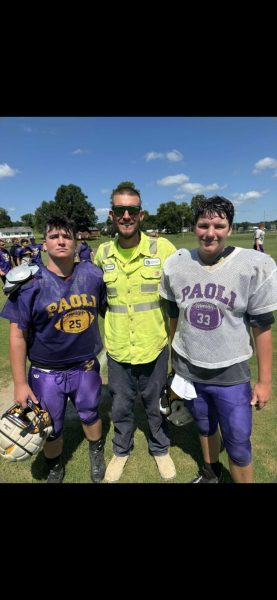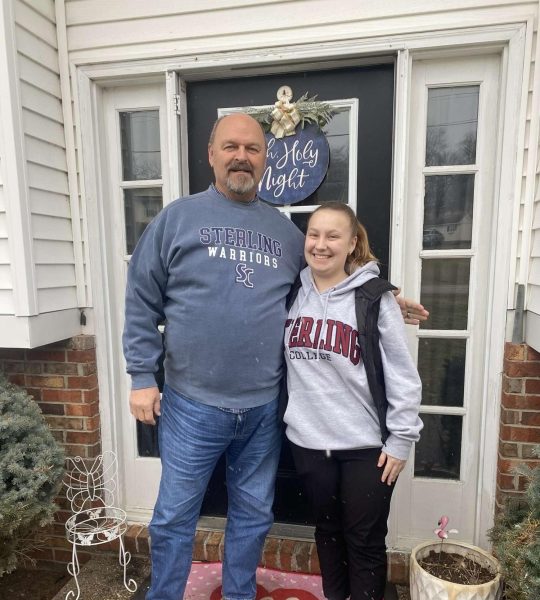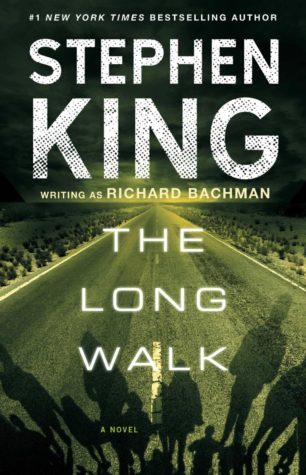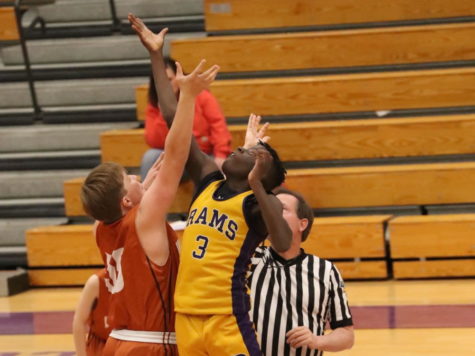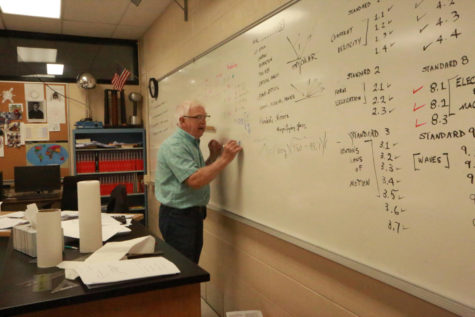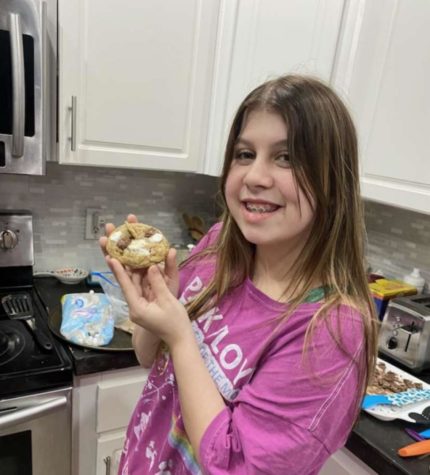Hess Feels Long-Lasting Impacts of Pandemic and Perceptions
Senior Amelia Hess poses with her dog, who is her biggest supporter.
In March of 2020, the world stopped. A global pandemic altered the lives of millions. When I look back on the diabolical months that the Coronavirus primarily thrived in, three words appear in my mind: isolation, change and sickness. My perception of these words is likely to be different from others’. These words illustrate more than what meets the eye.
Stage One: Isolation
If I were to tell you for three months I didn’t step a toe outside of my home, would you believe me? My bed had consumed me. I rarely ever came out of my room. I was working a nine to five sleep schedule. Secluding myself for the wrong reasons, I started to notice changes in myself. Of course, change was inevitable considering the change many had suffered around the world. The grim pandemic was expected to make a difference, but it altered me in ways that I had not anticipated.
Stage Two: Change
In no way am I a boastful individual, but I guarantee you the majority of you that are reading this have perceived me as the stereotypical popular girl, and I guarantee that this perception was fabricated from a young age. I will not deny the cliché accusation that I was stereo typically popular. I also won’t deny that COVID changed me.
Change is also cliché. Prior to COVID, my life was extremely convenient. I was in what I thought was the prime of my life. Overall, I was an optimistically extroverted girl. Friendly, athletic and social. I am still thrown into the pit of stereotypical popularity because, in a way, I have maintained these traits. But at what cost?
After months of isolating myself from reality, quarantine was lifted. Many of my friends dragged me out of my home in an attempt to force me to put down my shield. Though, things were different then. Three months lacking social exposure, what could go wrong? I no longer felt confident. I no longer led a conventional life. What were these feelings I was experiencing? Instead of jumping at the thought of going to the mall or grabbing a bite to eat with my friends like before, I preferred to stay home. Instead of looking in the mirror and seeing a beautiful, confident girl I found myself displeased with what I saw. I lost the love I had for many things I found enjoyable. Basketball, a sport I had loved since I was a kid, was now mentally exhausting and overwhelming. Art had become a means to pass a class. In no way did I like the person I was becoming, but for some reason, the changes felt easier.
Stage Three: Sickness
For nearly two years I managed to escape contracting the virus. However, I came down with something far more disordered. In the fall of 2020, I was diagnosed with anxiety and depression. The diagnosis hit me like a freight train. Of course I had felt anxious before. Exams made me anxious. Not ordering food at a drive through window. Not social gatherings with my own family. I was new to this worldly disease and had no clue how to cope. I soon began therapy. Today, I haven’t attended therapy in over 9 months — not because I recovered from this worldly illness I developed, but because I believed I had no reason to be depressed or anxious.

For years, even up until now, I am still perceived as the popular, life loving girl. The girl in advanced classes, the girl who plays a Varsity sport, the girl who spends the weekends with her friends. But what is the reality of the situation? My closest friends and greatest support system are my parents and certified emotional support dog. I spend most nights doubting my worth. Doubting my existence.
What you perceive is not always the reality of the situation. Lately, I have struggled with allowing myself to feel what is necessary to feel. I have struggled to understand it is okay to not be okay. Everyone has bad days. Everyone struggles with something hidden behind a curtain of happiness or strength. My message to anyone reading this who feels they are not allowed to experience feelings of anxiety or depression due to the glorified perspective that mental illness is a means to enable oneself is: you are allowed to have a bad day. You are allowed to be sad. I will not tell you that it gets better, but it does get easier. Don’t throw yourself into the mild percentage of individuals that bury their feelings due to society’s perceptions.
A cliché quote from myself to you: it is okay to not be okay. Almost everything is temporary, and someday you will find the light at the end of this dark and dreadful tunnel.
Thank you for supporting phsmedianews.com! Your donation helps to cover our annual web hosting fees.

My name is Amelia Hess. I am a senior at PHS. I love spending time with friends, family and my dog.


